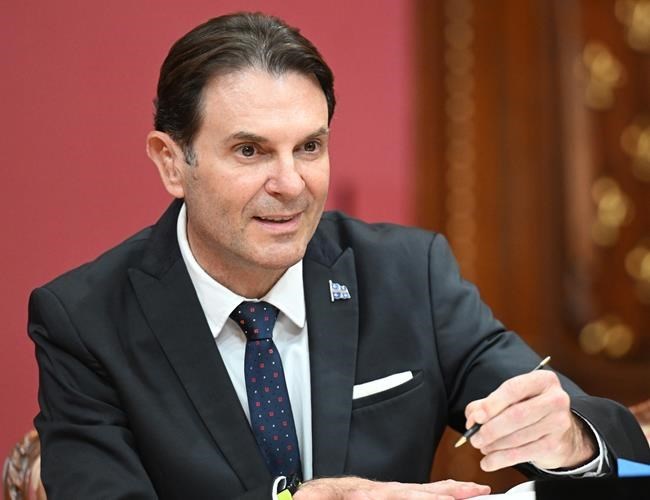MONTREAL — The Quebec government said Friday it will appeal a landmark Superior Court ruling that bans random police stops, because the province said the court decision deprives police of an important law-enforcement tool.
Last month, Quebec Superior Court Justice Michel Yergeau decided that a common law rule allowing police to stop motorists without suspicion that an offence had been committed "paves the way" for racial profiling. That rule, the judge said, violates three sections of the Charter of Rights and Freedoms: the right to life, liberty and security of person; the protection against arbitrary detention; and the guarantee of equality under the law.
The ruling was greeted by civil rights groups as a victory against racial profiling, but Public Security Minister François Bonnardel said Friday, “We consider it unjustified to abolish such an important (tool) for police forces."
However, Bonnardel said that while the government supports the police, "the status quo is unacceptable." In response, he announced new measures to prevent racial profiling by police. Officers will receive continuous training on discrimination and racial profiling, he said, adding that the province will fund progressive policing projects and make the police ethics complaints process more accessible.
The lawsuit was brought by Joseph-Christopher Luamba, a 22-year-old Black Montrealer who said he had been stopped by Quebec police nearly a dozen times without reason. None of those stops resulted in a ticket. The Superior Court ruling overturned rules established in a 1990 Supreme Court decision that found random stops were the only way to determine whether drivers are properly licensed, whether a vehicle's seatbelts work or whether a driver is impaired.
Yergeau also struck down a section of Quebec's Highway Safety Code — Article 636 — that relies on the common law power. The judge's decision, however, does not affect structured police programs, such as roadside checkpoints aimed at stopping drunk drivers.
The judge suspended the application of his ruling for six months to give police forces time to adapt, but he maintained that profiling "is a reality that weighs heavily on Black communities."
"Racial profiling does exist," Yergeau wrote in his ruling. "It is not a laboratory-constructed abstraction …. It manifests itself in particular with Black drivers of motor vehicles."
Christopher Skeete, minister responsible for fighting racism, said the government intends to hold consultations in the coming weeks with those affected by racial profiling. "We are aware the line is thin between giving police officers the tools they need to do their work and our deep desire to eliminate racial profiling in society with our police force," he said.
Civil rights groups were disappointed with the government's decision to appeal, but they said they expected it.
"Even though we regret the fact the government appealed, it was expected right from outset because we think the case could go to the Supreme Court (of Canada) eventually," said Fo Niemi, executive director of the Centre for Research-Action on Race Relations.
Niemi said he had doubts about Bonnardel's announcement that the government would make the complaints process against police more accessible. That process, he said, can take years to conclude and is often psychologically, emotionally and financially exhausting.
"The ministers should really sit down and listen and talk to victims of racial profiling to understand most of the time, these recourses are not effective because they take too long," Niemi said.
Quebec civil rights group Ligue des droits et libertés said in a statement the appeal is a "missed opportunity."
The decision to appeal was also condemned by all three opposition parties at the legislature. Andrés Fontecilla, the racism critic for Québec solidaire, called the appeal tantamount to admitting that racial profiling is acceptable in the province.
Fontecilla said the government's appeal goes against the recommendations of its own anti-racism group, which proposed putting an end to random police stops. “It's a huge slap in the face for all racialized people, especially for Black communities in Quebec."
This report by The Canadian Press was first published Nov. 25, 2022.
Sidhartha Banerjee, The Canadian Press



